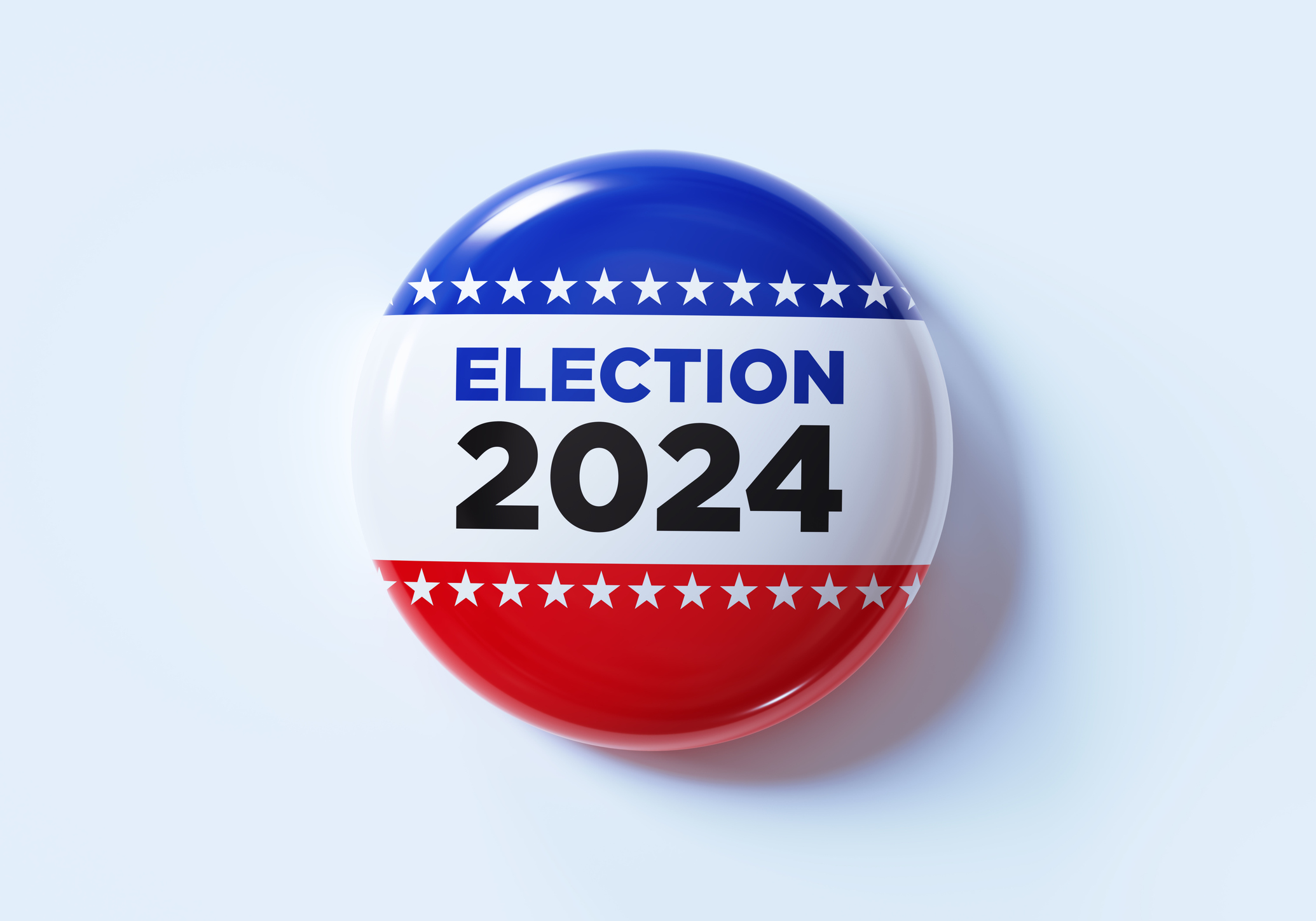
Taxes and tax policy have taken center stage in the 2024 presidential election campaign. And candidates Vice President Kamala Harris and former President Donald Trump present very different visions for the country's economic future.
Policies covering everything from an expanded child tax credit, bigger tax credits for small businesses, and higher tariffs and capital gains rates to no tax on tips and ending taxes on Social Security benefits and overtime pay are floating around.
So, it’s hard to know how likely voters feel about the policies.
Interestingly, a recent survey by The Guardian in collaboration with the Harris Poll (not related to the Democratic candidate) is shedding light on what some voters think of the candidates' tax plans — when the people surveyed aren’t told which ideas belong to which candidate.
The findings suggest voters might be more likely to favor particular tax and economic policies when those proposals aren’t immediately associated with a particular political party.
So, whose election tax policies are more popular with voters? Here’s more to know.
Election 2024: Harris tax plans favored in blind poll
Interestingly, when presented without attribution, Harris' economic proposals generally received more support from respondents than Trump's. According to the Guardian poll, four of the five most favored economic proposals came from the Harris campaign.
(Those surveyed — 2,122 adults — were offered a list of twelve policy proposals — six each from Harris’ and Trump’s plans. The survey, conducted in September 2024, didn’t indicate to respondents which candidate proposed which ideas. )
- The most popular proposal overall was a federal ban on price gouging for food and groceries, a policy put forward by Harris.
- Approximately 44% of respondents believed this measure would boost the economy.
This is probably not surprising since the high and rising cost of living are key issues for many voters.
For example, food prices have risen significantly above historical averages in recent years. Although data show that the increase has slowed, the cost of food remains too high for many.
Related: Food Tax: States That Still Tax Groceries
VP Harris economic plan
Harris tax plan popularity
Other proposals from Harris that were well-received by respondents included expanding the child tax credit and offering targeted tax breaks for new small businesses.
According to the survey, 33% of respondents supported both policies.
Child tax credit
As Kiplinger has previously reported, Harris has proposed increasing the child tax credit (CTC) to $3,600 for children aged 0-5 and $3,000 for children aged 6-17, with a $6,000 newborn tax credit for a child's first year.
The current CTC for the 2024 tax year is up to $2,000 per eligible child.
This expansion aligns with her campaign's focus on supporting families and addressing child poverty. Data indicate that a CTC expansion like this could (as one did during the pandemic) reduce child poverty rates and provide notable support to middle-class families.
Small business tax deduction
For small businesses, Harris has suggested raising the tax deduction for startup expenses from the existing $5,000 to $50,000. This proposal is designed to encourage entrepreneurship and stimulate economic growth at the grassroots level.
Data from the e-commerce platform Shopify show the average cost of starting a new small business in the U.S. is around $40,000 in the first full year.
Capital gains tax rate
In addition to tax breaks for children and small businesses, just under 30% of respondents supported increasing the tax rate on long-term capital gains for those earning over a million dollars.
The Vice President has proposed a 28% rate for long-term capital gains for those earning a million dollars or more a year — an increase from the current top capital gains tax rate of 20%.
As Kiplinger has reported, that proposed rate is notably lower than the rate proposed in the FY25 Biden Budget. For more information, see Harris Calls for 28% Capital Gains Rate.
Trump tax plan
Social Security tax proposal: Trump
Trump's policies were generally less popular in the blind survey. As Kiplinger has reported, a key aspect of the former President's plans involves increased tariffs.
- However, Trump's proposal to end taxes on Social Security benefits was among the top five most popular, with 42% support.
- (Some economists are concerned this proposal might do more harm than good.)
For more information, see What's Wrong With Trump's Pledge to Eliminate Taxes on Social Security Benefits.
The former President has also proposed lowering the corporate income tax rate from 21% to as low as 15% for domestic manufacturers. However, according to the Guardian, that proposal didn’t receive as much support in the blind survey as Harris' policies.
Voter demographics
Gen Z voters
The survey also revealed interesting voter demographic patterns. For example, those identifying as independent voters tended to prefer Harris's economic and tax policies over Trump's when those ideas were presented without candidate attribution.
Additionally, Harris' tax proposals were particularly popular among younger respondents.
- For example, the survey found that 87% of millennials and Gen Z voters believed at least one of Harris's proposals would positively impact the economy.
Interestingly, the survey also addressed how clear each candidate's policy is perceived to be.
- Over 60% of voters reported understanding Harris's economic stance
- Though, slightly more voters said they understood Trump's economic positions on various issues than Harris'.
Election 2024 tax plans: Bottom line

Given the looming expiration of key provisions in the Tax Cuts and Jobs Act (TCJA), taxes will remain a key issue beyond the election.
According to the Guardian survey, Harris' proposals seem more appealing when presented neutrally. However, it’s important to note that the impact of these or any other tax plans on the election outcome remains to be seen. Whoever wins the White House must get any tax proposals through a deeply divided U.S. Congress.
There are also costs: The Committee for a Responsible Federal Budget estimates Harris' economic plans could add $3 trillion to the federal deficit and that Trump's proposals could add nearly twice as much: $7.5 trillion.
As always, before you vote, carefully consider how each candidate's policies might affect you.







